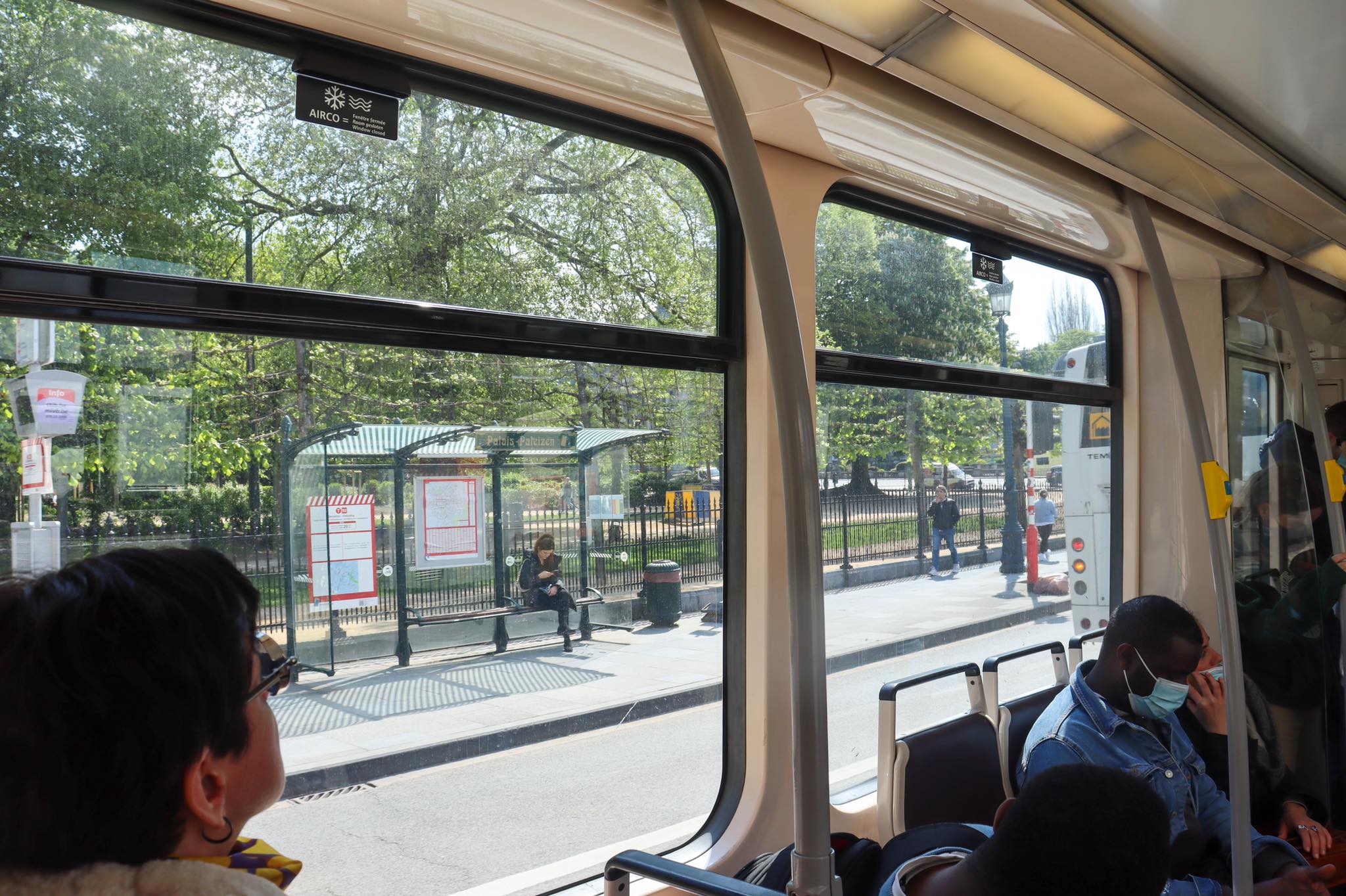While 1 July marks the start of the summer holiday for many, there's no break when it comes to changes in Belgian laws, with scheduled updates coming into force and regional adjustments that will affect everything from travel to animal ownership. Here's what you should be aware of.
Long-awaited changes
The long-awaited rigorous restrictions on gambling advertising on television, radio, online and billboards, as well as in magazines or newspapers will take effect from Saturday. This is part of ongoing efforts to tackle addiction and debt.
As was the case when a ban on tobacco advertising was introduced, a transition period will "allow the sector to adapt to the new reality." From January 2025, sponsorship of sports clubs by gambling companies will also be addressed. Read more about it here.
Affected sectors went to court to overturn the royal decree; legal proceedings are still ongoing.
Meanwhile, some ten million Maestro bank cards will gradually be withdrawn from circulation in Belgium and be replaced with a Debit Mastercard, which is better for online shopping. The transition will take up to five years.
Those with a Maestro card don't need to do anything; their bank will automatically send a new debit card with a different and shorter card number when the current card expires. The new card will remain linked to the current account and will work in the same way. Read more here.
Changes to social tariff
From 1 July, the extended social tariff for energy ends. The measure usually only applied to certain categories of disadvantaged households, such as those receiving a social integration income or disability allowance. Read more here.
Entitlement to the tariff was expanded to include low-income families during the pandemic and energy crisis but will now be reduced again. This will result in around 300,000 gas and 500,000 electricity contract holders returning to normal commercial energy tariffs.
Consumer protection organisation Test Achats criticised the change and has advised families with lower incomes to check the proposed contract when starting a new one, warning that many providers offer a temporary discount but then increase the costs after three months.
Those still eligible for social tariffs for electricity will see the assistance fall by an average of 15.9% compared to the previous quarter – the lowest they have been for two years. The social tariff for natural gas will rise by 9.5% compared with the previous quarter. Without the social tariff, the increase would be 19%.
What's new in public transport?
From 1 July 2023, over 65s in Brussels will be able to buy an annual pass for €12, a measure which has previously been introduced for students and young people under the age of 25.
This marks a sharp drop in cost for this age group, whose annual pass was previously €60. Read more here.

Credit: Lauren Walker/ The Brussels Times
In Flanders, public transport operator De Lijn will start the first major phase of the rollout of its basic accessibility system which will remove some stops and relocate others. Timetables will also change and new line numbers appear. It will also introduce a customised transport system for certain rural areas. Read more about the impact here.
Business as usual?
Tax deductibility for new company cars with combustion engines will be phased out from 1 July as part of Belgium's efforts to promote a greener car fleet. Only company cars with no CO2 emissions (electric or hydrogen-powered) will be 100% deductible until 1 January 2027, after which their deduction will also be gradually phased out.
For company cars purchased before 1 July, nothing will change. The costs remain deductible to the same extent. For combustion-engine cars (petrol, diesel, LPG or CNG) purchased between 1 July and 31 December 2025, the deductibility will be phased out gradually before being dropped on 31 December 2025.
From 1 July, Belgium will increase government vetting of foreign investments into "strategic areas" to guard against foreign interference that could pose a threat to strategic autonomy. The move aims to prevent non-EU investors from becoming owners or managers of sensitive infrastructure, in particular the technology, food supply, energy, data, and media sectors.
The principle of additional tax-friendly overtime (so-called "relance overtime" for extra working hours) will be resumed on Saturday. Unions and employers reached an agreement on this earlier this year.
This will affect additional overtime on top of normal voluntary overtime: 120 such hours may be carried out per calendar year until the end of June 2025. These working hours are exempt from social security contributions and not subject to personal income tax.
Health changes
The sensor for patients with type 2 diabetes who need to receive insulin three times a day (used by around 18,900 children and adults) will be fully reimbursed from 1 July.
People with type 2 diabetes do not make enough insulin to assimilate sugar or do not respond well to insulin. They often have to take blood samples several times a day to measure their sugar levels and inject insulin. The free sensor will simplify this process. Read more here.
From Saturday, gay men can donate blood four months after their last sexual encounter, rather than having to wait for 12 months. The deferral period is a precautionary measure to ensure the safety of the patient receiving the blood, as evidence shows that men who have sexual intercourse with men are at increased risk of contracting HIV and other sexually transmitted infections (STIs). Read more about this here.
The Red Cross, which operates blood donation services in Belgium, has argued that the shortened period will generate additional financial and personnel costs for the organisation.
Finally, patients will be able to have their long-term intravenous antibiotic treatment or chemotherapy administered at home or at their place of residence at no extra cost, allowing them to remain in their familiar surroundings during their treatment.
Social benefits
Due to the combined effects of the indexation and the government agreement on welfare packages, numerous benefits will be increased on 1 July. Firstly, the minimum pension will be indexed, while there is a 2% adjustment for pensions (other than minimum pensions) for pensions started in 2018.
The Income Guarantee for the Elderly (IGO) – a benefit for over-65s who do not have sufficient financial resources – will increase by 2%, as will the income replacement allowance for people with disabilities (ARR).
Related News
- Smoking, spitting and oversized backpacks: Tougher fines planned on Brussels transport
- Surely not? Bizarre Belgian laws that still exist today
Pensions that started before 2008 will go up by 1.2% on 1 July 2023 for pensioners who do not receive a guaranteed minimum pension. Those who are fully unemployed will also see their minimum benefits increase by €21.45 gross per month for heads of household and €17.38 for single people.
Finally, single parents caring for a child will see their parental leave allowances rise by 1.2%, as will those receiving a day off for childcare. Minimum allowances for accidents at work and occupational illnesses will rise by 2%.
Changes specific to Flanders
The road tax in Flanders will rise by 5.2% from 1 July, due to an annual indexation. Fully electric cars and hydrogen-powered cars are exempt from road tax.
As for the so-called green road tax, for cars registered from 2016 the minimum tax will rise from €48.00 to €50.49 depending on the vehicle's CO2 emissions, Euro standard and fuel type: the more polluting the car, the more the owner must pay.
Cars registered before 2016 are still taxed with fixed amounts based on engine capacity. Those rates are also going up by 5.2%. When a car is registered, a one-off tax on entry into service (BIV) is due, which has also increased by 5.2%. The amount depends on the environmental characteristics and age of the car.
Changes specific to Wallonia
From 1 July, it will be illegal to import puppies or kittens to Wallonia for sale as part of a wider plan to strengthen the legislative framework for animal establishments, such as shops, shelters, dog and cat farms and boarding kennels.
The region sees around 6,000 puppies imported each year. The ban comes after many of these animals were "too often raised and transported in deplorable conditions." It is hoped the new measure will ensure that animals are bred by Walloon breeders in good conditions.


